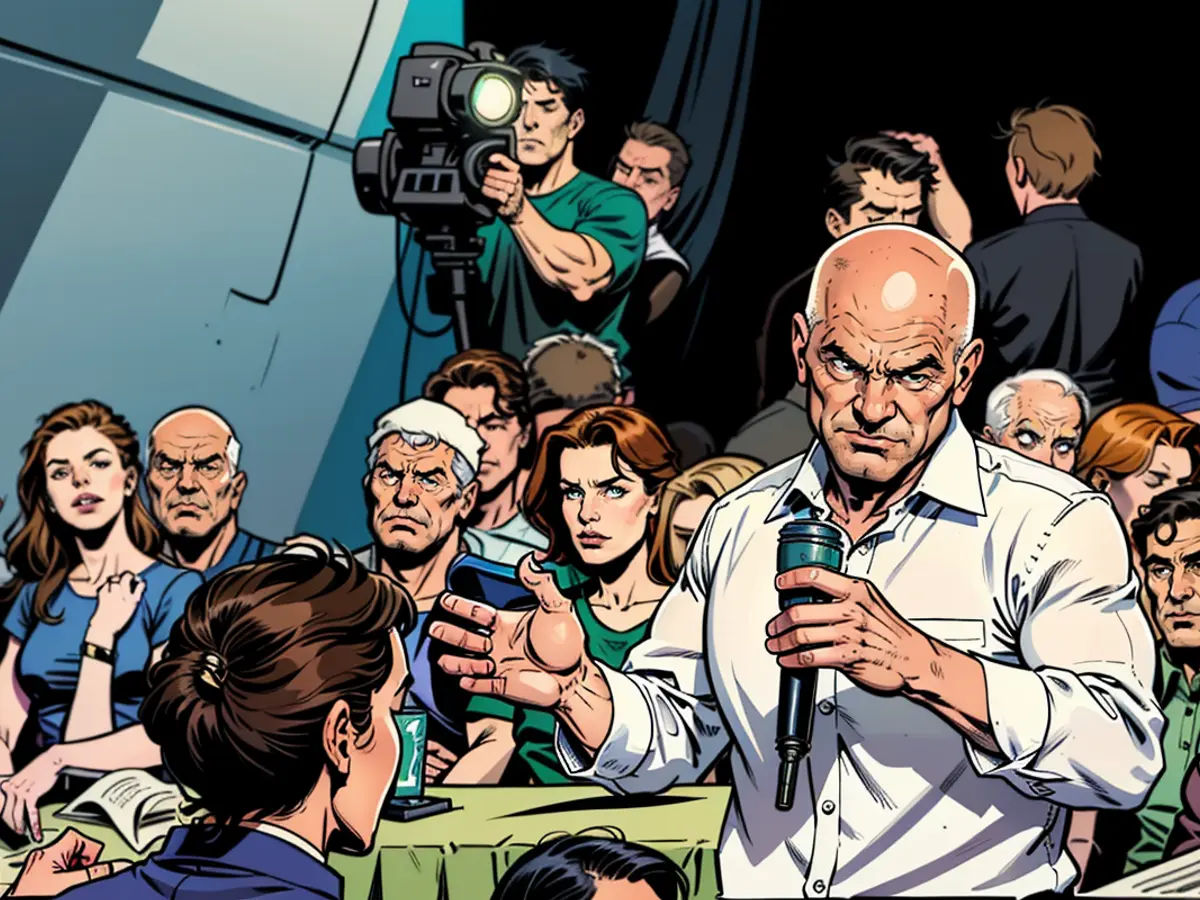- The traffic light's visual aspect is causing perplexity in Scholz.
Why does the traffic light coalition present such a fragmented image at times? During a town hall meeting in Berlin, Federal Chancellor Olaf Scholz had no direct answer to this question. He responded with a question of his own: "What's your secret recipe? I'm asking for a friend."
A 48-year-old educator from Berlin-Pankow brought up this topic, discussing the constant inconsistencies in the coalition's decisions and blunders. "It's like a bunch of kids playing boss: one says one thing, another says another, and the message gets distorted," the attendee explained.
Scholz didn't dispute the analogy. "You're right," he acknowledged. On the topic of blunders, he then pointed out that he has "three soundproof rooms" in the Chancellery for confidential discussions. Asked again, he simply repeated: "You're spot on."
Differences with Lindner? "Rarely observed"
However, Scholz did take issue with one of the attendee's claims. That he frequently disagrees with Finance Minister Christian Lindner (FDP) was something he denied. "That's been a rarity so far," he stressed.
Scholz's comments align with the situation over the past few weeks. The coalition partners, who once vowed to improve after major disputes, now seem content to leave disagreements unresolved.
The soundproofing of the traffic light has fallen short
Just about a year ago, Lindner declared after a cabinet retreat near Berlin: "We're a government that gets things done by force and by screws. The noise that results is something you're already familiar with. But something good also comes out of it."
And Scholz added, looking ahead: "We'll get things done, but with soundproofing." That promise hasn't been kept, though. Instead, the background noise of the struggling coalition has only grown louder.
Three reasons for the AfD's surge
Scholz addressed the AfD's strong showing in recent elections for the first time at the town hall meeting. The AfD's performance of over 30 percent in both states "really saddens me," he said. He attributed the party's significant growth, considered securely right-wing extremist by both the states' constitutional protection agencies, to three factors: growing uncertainty due to societal changes, illegal immigration, and the Ukraine conflict.
The substantial economic and social changes are causing worry for many citizens, according to the Chancellor. He used the shift towards reducing greenhouse gas emissions as an example. In this transition, "we have to prove through our actions that we can handle it," he said. Regarding illegal immigration, the federal government needs to show that it has the situation under control, "that's what I'm working on," he added.
As for the Ukraine conflict, Scholz isn't ready to alter his stance. He plans to continue providing Ukraine with military aid, while remaining cautious. "That's a topic that needs to be talked about. But I also think it's a matter of honesty. And on that, let me be clear: I'll stick to my cautious course, but a course of support."
SPD results: "There could have been more"
The SPD finished with 7.3 and 6.1 percent in Saxony and Thuringia on Sunday, the party's worst showing since 1990 and its worst-ever result in a state election in Thuringia.
On Monday, Scholz initially responded in writing, describing the SPD's performance as "disappointing." However, he expressed relief that the "worst-case scenarios" of the SPD falling below the 5 percent threshold hadn't materialized.
At the town hall meeting, Scholz merely mentioned that he wished for better results for the SPD in Saxony and Thuringia. "More could have been achieved, as they really performed well. But we must acknowledge the truth," he said.
The traffic light coalition, which includes Germany, has faced criticism for its fragmented image and inconsistent decisions. Despite this, Federal Chancellor Olaf Scholz has downplayed disputes with Finance Minister Christian Lindner, stating that disagreements between them have been "rarely observed."
Finance Minister Lindner, who hails from Germany, made a bold statement about the coalition being tough and getting things done, even if it resulted in noise. However, Scholz's promise of soundproofing the coalition has not been kept, with the background noise of disagreements only growing louder.








